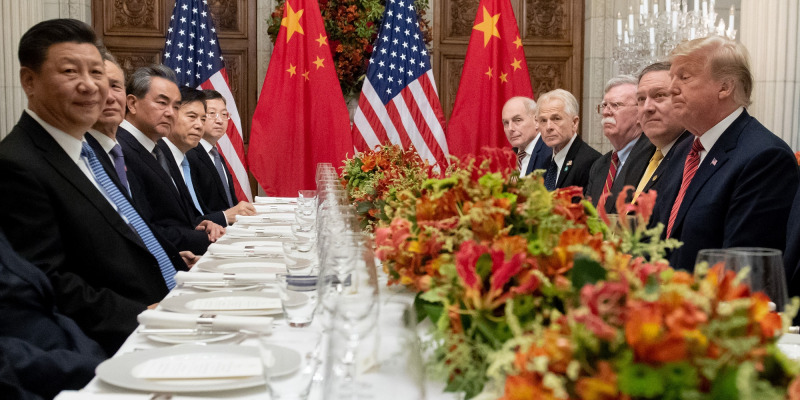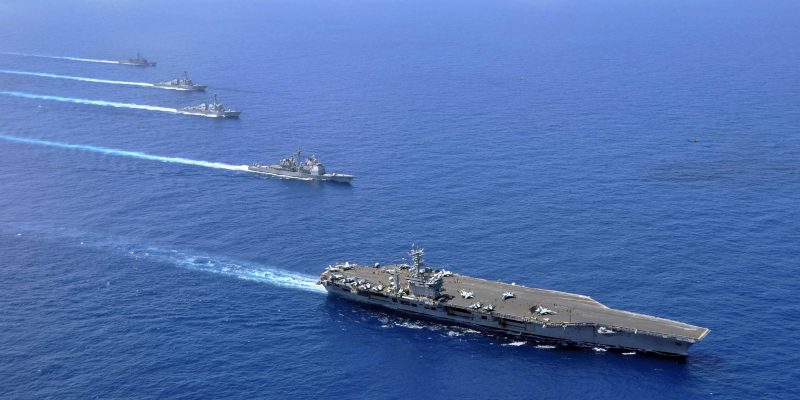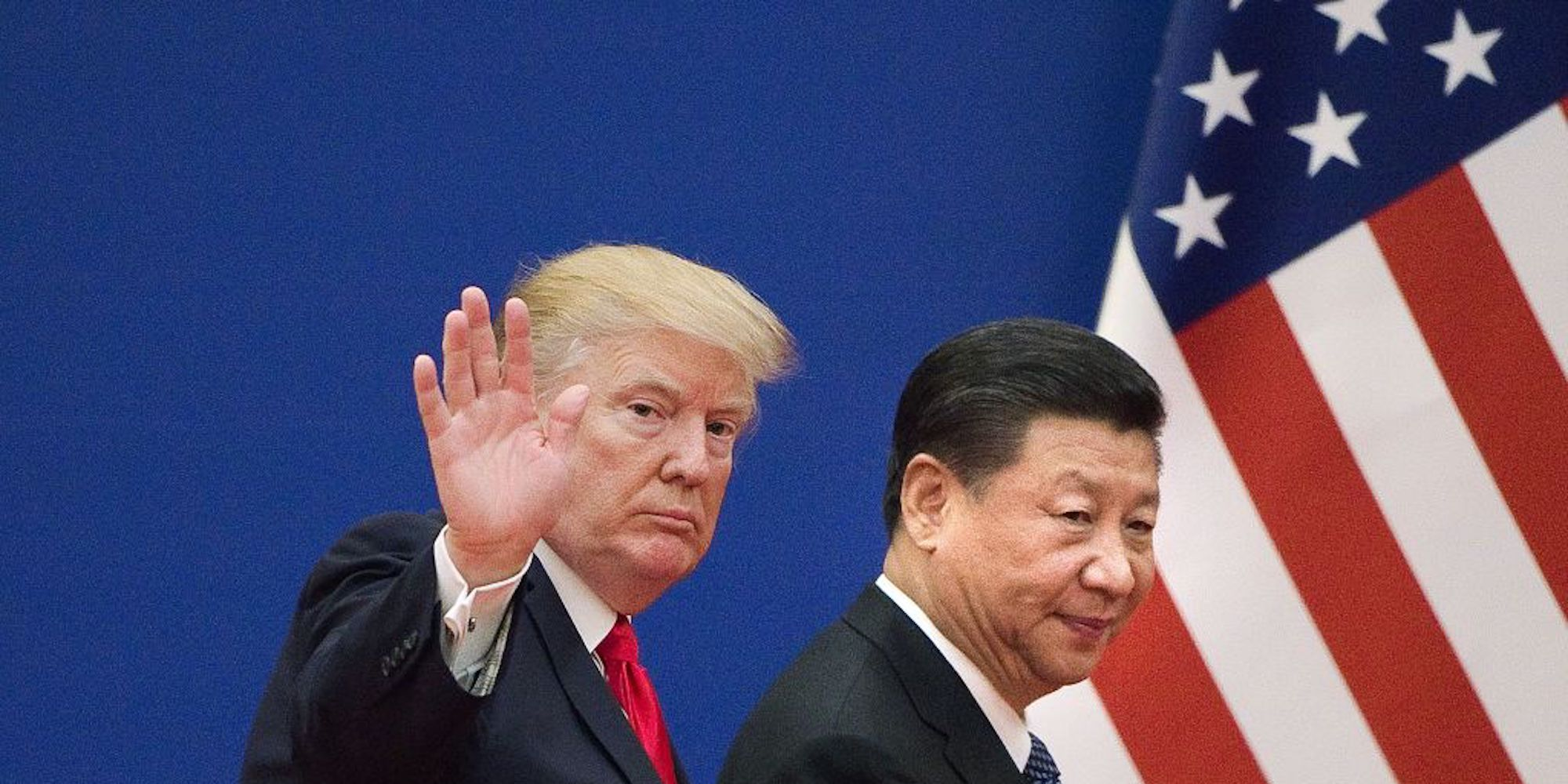- With the trade war between the US and China escalating, cooperation between the two states on issues including security is under threat, experts warn.
- Ely Ratner, the director of studies at the Center for a New American Security, told The Washington Post that the failure to reach a trade deal could see the US unleash “harsher measures” against China.
- Possible flash points include the South China Sea or Taiwan, where Washington and Beijing are at loggerheads.
- Visit Business Insider’s homepage for more stories.
President Donald Trump’s escalating trade war with China could signal a new era of confrontation between the two states, experts warn.
On May 10, the president levied higher tariffs on $200 billion worth of Chinese goods after trade negotiations between Washington and Beijing collapsed. The Chinese government responded by announcing higher tariffs on $60 billion worth of US goods.
The moves were the latest in a series of disputes between the US and China that have left relations between the states at their worst point in decades.
Ely Ratner, who previously served as an adviser to Joe Biden and is now the director of studies at the Center for a New American Security, told The Washington Post that the failure to strike a trade deal could see the US unleash “harsher measures” against China, for example by increasing its military presence in the disputed South China Sea.
In January, Bruce Jones, the vice president and director of the Brookings Institution, wrote that 2018 had marked a "turning point in U.S.-China relations, the closing of an era of expanding cooperation," which he said reached their high-water mark in the wake of the 2008 financial crisis.

President Barack Obama at a 2009 meeting of the US-China Strategic and Economic Dialogue called for a new era of cooperation between the US and China on issues including the recovery from the 2008 economic crisis, renewable energy, and the proliferation of nuclear weapons.
But the relationship has soured in the past decade, with the US and China clashing over increased Chinese assertiveness in the South China Sea, Chinese industrial espionage and hacking, as well as trade.
Jones wrote that relations between the countries had become marked by confrontation.
"The era of US-China cooperation is drawing to a close," he said. "What follows is strategic competition - but not necessarily conflict."
China is also among the most urgent concerns of America's military chiefs.
Soon after taking office in January, Acting Defense Secretary Patrick Shanahan urged top defense officials to "remember China, China, China."
A Defense Intelligence Agency report that month warned that China posed an increasing threat to American military power and that the US was not responding quickly enough to Chinese efforts to dominate the Pacific.
On Monday there was a fresh confrontation between the powers in the South China Sea. Beijing accused the US of "provocative actions" a day after US warships sailed near waters where China has claimed ownership. The US has criticized China for militarizing the disputed region by building a string of installations on artificial islands.
China has called on the US to cease naval patrols in an area where it claims sovereignty, while the US describes the patrols as "freedom of navigation" exercises.

In a sign of how national security and economic concerns are intertwined, the US last week blacklisted the Chinese telecom giant Huawei, making it difficult for US firms to do business with the company. US Commerce Secretary Wilbur Ross said the move was aimed at bids to "potentially undermine US national security or foreign policy interests."
Experts have for months been warning about the deterioration of Chinese-US relations.
Back in November, former Treasury Secretary Hank Paulson warned of an "economic cold war" developing between the US and China if they continued along their current path.
"The US-China strategic interaction is by far the most consequential in the world. I am very sobered by the trajectory we are on now," Paulson said.
"And ultimately, I think it could pose a risk to the very functioning of the international system."











